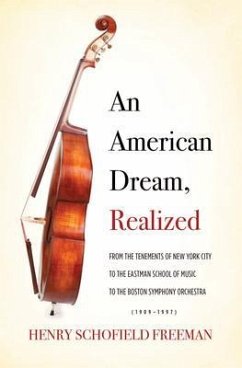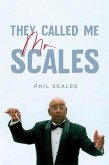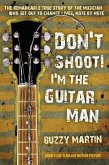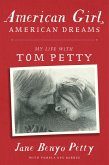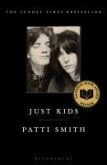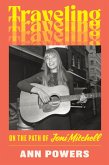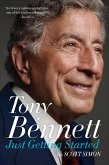An eloquently vibrant account of life in the first half of the twentieth century, and a true love story.
Henry Freeman grew up in the seedy tenements of New York City in the 1910s and '20s. His father, a trumpeter who had played for John Philip Sousa, made his living playing for the silent pictures and vaudeville theatres and was for a time blackballed by the New York musicians union for helping to organize a strike. Harry Freeman, the father, however, soon won a position as the first professor of trumpet at the new Eastman School of Music in
Rochester, but continued to prevent Henry and his two brothers from taking any music lessons. Said Harry, it was too hard and poorly compensated a profession; he urged Henry to take up banking.
In his last year in high school, however, Henry was not to be deterred, and when the orchestra director offered him the opportunity to take up the double
bass, Henry accepted the challenge and soon won a scholarship as Eastman's first double bass student. There he met and wooed a beautiful young violinist, Florence Knope. After their marriage, Florence pushed Henry to become more than a local dance band player, and after a successful audition for Serge Koussevistky, he won a position in the bass section of the Boston Symphony. He eventually rose through the section to be principal bass of that famous orchestra as well as principal bass of Arthur Fiedlier's Boston Pops.
This is a story of a young man's perseverance against all odds, but it is also a love story. Henry's enduring devotion to his wife Florence and their two sons Bob and Jim is a remarkable account of one man's life in music.
Henry Freeman grew up in the seedy tenements of New York City in the 1910s and '20s. His father, a trumpeter who had played for John Philip Sousa, made his living playing for the silent pictures and vaudeville theatres and was for a time blackballed by the New York musicians union for helping to organize a strike. Harry Freeman, the father, however, soon won a position as the first professor of trumpet at the new Eastman School of Music in
Rochester, but continued to prevent Henry and his two brothers from taking any music lessons. Said Harry, it was too hard and poorly compensated a profession; he urged Henry to take up banking.
In his last year in high school, however, Henry was not to be deterred, and when the orchestra director offered him the opportunity to take up the double
bass, Henry accepted the challenge and soon won a scholarship as Eastman's first double bass student. There he met and wooed a beautiful young violinist, Florence Knope. After their marriage, Florence pushed Henry to become more than a local dance band player, and after a successful audition for Serge Koussevistky, he won a position in the bass section of the Boston Symphony. He eventually rose through the section to be principal bass of that famous orchestra as well as principal bass of Arthur Fiedlier's Boston Pops.
This is a story of a young man's perseverance against all odds, but it is also a love story. Henry's enduring devotion to his wife Florence and their two sons Bob and Jim is a remarkable account of one man's life in music.
Dieser Download kann aus rechtlichen Gründen nur mit Rechnungsadresse in A, D ausgeliefert werden.

